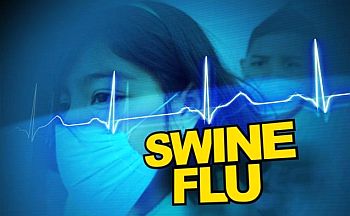 08/17/12 Marshall, Marion, and Delaware counties now join 20 previously identified counties where cases of variant influenza A (H3N2v) have been confirmed. The total number of cases, however, remains at 138, as announced earlier this week. The Indiana State Department of Health recently found some duplication in the samples submitted to the State Laboratory and has adjusted the number of cases confirmed in some counties. Counties with lower than previously reported cases include Monroe (61) and Hamilton (1).
08/17/12 Marshall, Marion, and Delaware counties now join 20 previously identified counties where cases of variant influenza A (H3N2v) have been confirmed. The total number of cases, however, remains at 138, as announced earlier this week. The Indiana State Department of Health recently found some duplication in the samples submitted to the State Laboratory and has adjusted the number of cases confirmed in some counties. Counties with lower than previously reported cases include Monroe (61) and Hamilton (1).
In total, variant influenza A cases have been confirmed in the following counties: Bartholomew, Delaware, Greene, Hamilton, Hendricks, Jackson, Jennings, Johnson, Kosciusko, LaPorte, Lawrence, Marion, Marshall, Monroe, Morgan, Owen, Porter, Scott, Tippecanoe, Tipton, Washington, White, and Whitley.
The Indiana State Department of Health has set up a call center to answer the general public’s questions regarding variant influenza A. The call center is open from 8:15 a.m.-4:45 p.m., Monday through Friday. The call center telephone number is (877) 826-0011.
Flu symptoms usually include fever and respiratory symptoms, such as cough, sore throat, and runny nose, and possibly other symptoms, such as body aches, nausea or vomiting, or diarrhea. Symptoms may last anywhere from three to eight days.
To avoid influenza and other respiratory infections, Hoosiers are reminded to follow these simple practices:
- Wash your hands frequently, including before and after touching animals.
- Never eat, drink, or put anything in your mouth when visiting animal areas.
- Older adults, pregnant women, young children, and people with weakened immune systems should be extra careful around animals.
- Cough or sneeze into your sleeve or elbow.
- If possible, avoid contact with those who are ill.
- Stay home if you develop influenza symptoms and contact your health care provider.
Immunocompromised individuals, such as those with diabetes and other chronic disease, as well as pregnant women and the elderly, should consider avoiding entering into enclosed areas where swine are present as a precaution.
Health officials have not determined person to person transmission at this time, but continue to investigate the possibility. Variant Influenza A virus can be directly transmitted from swine to people and from people to swine. Human infections are most likely to occur when people are in close proximity to live infected pigs, such as working with them in barns and livestock exhibits at fairs. Influenza viruses are not transmitted by eating pork and pork products.
Additional information regarding influenza can be found at the Indiana State Department of Health website at www.StateHealth.in.gov.













